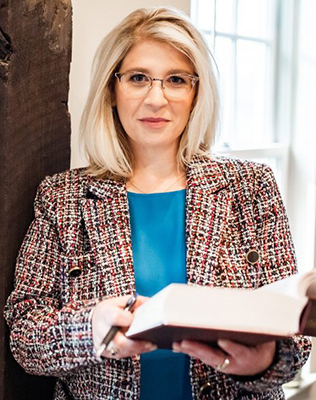Alternative Dispute Resolution
Allyson B. Goldscher Puts Families First
Just as every couple is different, no two divorces are the same. Although litigation may be unavoidable for some spouses, for others, there is a better way. Mediation allows couples to avoid a costly, protracted legal battle over custody and visitation, parenting schedules, child support and other contentious issues. In order to succeed, mediation requires a balanced and thoughtful approach by a qualified mediator. If you are contemplating mediation, Baltimore mediator, Allyson B. Goldscher, is the helping hand you need. As a custody and access mediator, Ms. Goldscher serves as a neutral third party and has guided parents through the mediation process.
Many parents may think that letting a judge rule on how to handle disputes regarding children, such as custodial arrangements, is easier than trying to work through these issues with the other parent. However, you may wind up sacrificing the opportunity to work out an agreement based on your intimate knowledge of what is best for your child. Instead, you should consider mediation, a process that brings parents together with a neutral mediator who knows how to help resolve even the thorniest issues of custody and visitation. Mediation enables you to avoid lengthy and expensive court battles, which can be detrimental to your child’s well-being as well as your own. You can still retain an attorney to represent you during these proceedings, to ensure that your rights are protected, as well as those of your child.
The mediation process – although more streamlined and less costly than a traditionally litigated divorce – still requires a good faith effort by both parties to put their differences aside and work together post separation.
The three types are: Mediation, Parenting Coordination, Collaborative Divorce.
Types of Alternative Dispute Resolution
Mediation
Mediation involves a third party, who is present to help the spouses arrive at an outcome that can be agreed upon at settlement. A mediator can be employed to resolve divorce and custody issues. It allows the separating couple to maintain the decision-making power, instead of placing the outcome in the hands of a judge, magistrate, or arbitrator.
Collaborative divorce
Divorce does not always have to be contentious. In some cases, parties will choose to hire lawyers to help the parties negotiate without the adversarial component. Most negations happen in a four-way meeting and involve many of the same elements of mediation, but is done by two lawyers representing each client, instead of one central mediator. If the couple decides to litigate, they must find new lawyers and cannot proceed with their collaborative divorce counsel.
Parenting Coordination
A parenting coordinator completes specialized training that helps them assist parents when conflicts arise in child custody or access matters. Parenting coordination helps reduce the harmful effects that may arise through contentious litigation or when parents are at odds.
Mediation With and Without Legal Representation
In Maryland mediation begins with the selection of a mediator, a neutral third party with no previous affiliation with either spouse. The divorcing couple and their chosen mediator will then meet during an initial consultation wherein the most pressing issues will be identified. Living arrangements and alimony – temporary, rehabilitative and/or indefinite – may be addressed, as will a couple’s short and long-range plans for custody of children they may share. If a consensus on any of these issues appears unlikely, a Baltimore mediator will go to work, helping both spouses to find common ground.
Although it is not necessary for a divorcing couple to be represented by counsel during mediation it is not uncommon. A Baltimore mediator can fulfill either role – mediator, or counsel for a party pursuing a mediated divorce. Even in more complex cases involving extensive assets, mediation can be beneficial when both spouses agree to be fully forthcoming about their finances. Moreover, mediation can be used to settle one aspect of a divorce upon which there is no disagreement – such as child support – while leaving other issues, such as the division of marital property, to a formal divorce proceeding. When all issues suitable for mediation have been resolved, a couple can finalize their divorce.
Baltimore Mediator: Mediation vs. Litigation
The benefits of undergoing mediation cannot be understated. Litigation is not only lengthy and contentious but also plays out in open court. For some divorcing couples the notion of enduring such a public spectacle is motivation enough to pursue mediation, which is completely private. Litigation also brings an element of uncertainty to a divorce, for the outcome is often in the hands of a judge. With mediation, because both parties have been active participants in the process, the terms which are ultimately reached will be mutually agreeable. Lastly, mediation – even when both sides are represented by counsel – is less expensive than taking a divorce case to court.
Baltimore Mediator, Allyson B. Goldscher: A Skilled Mediator
A divorce may conjure up images of tear-filled, courtroom shouting matches for many but Baltimore Mediators at the Law Offices of Allyson B. Goldscher, LLC can offer their clients a different outcome. Mediation can provide divorcing couples an element of control that is lacking in a traditional divorce. Ms. Goldscher will serve a facilitator, ensuring that both sides feel validated and heard, and walk away from the mediation process poised to move forward. If you or a loved one is in need of legal representation or interested in mediation, call 1-410-602-9522, or contact us online. At our offices in Stevenson, Maryland, we provide mediation services for divorcing clients throughout Baltimore County and Baltimore City.

